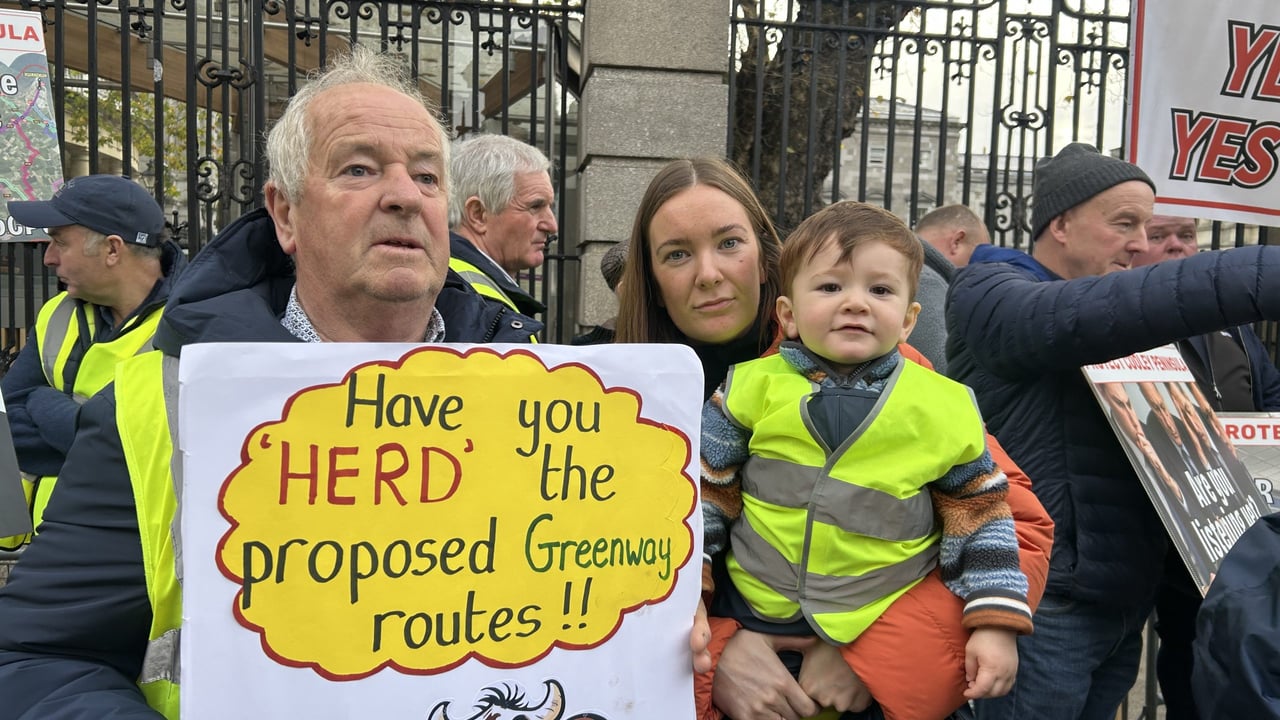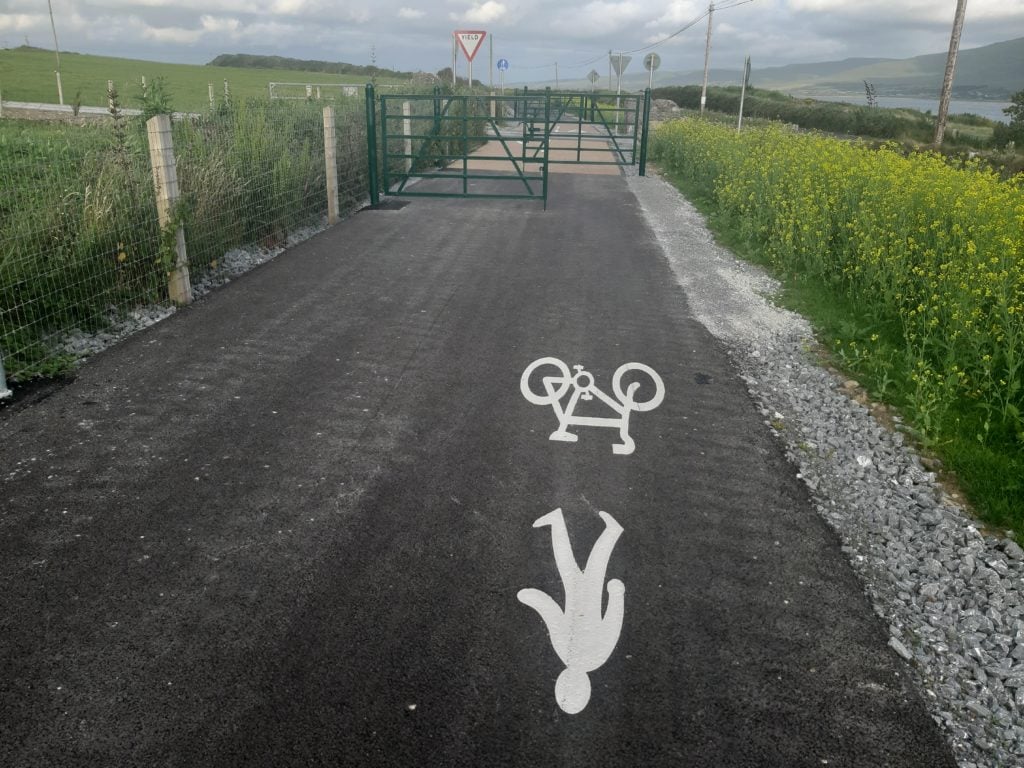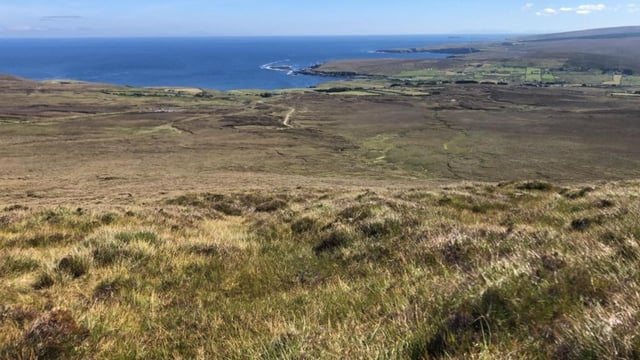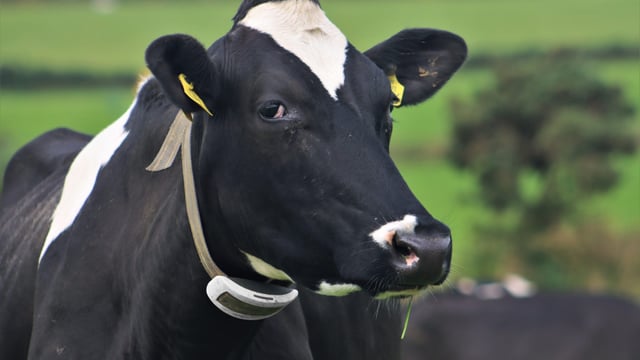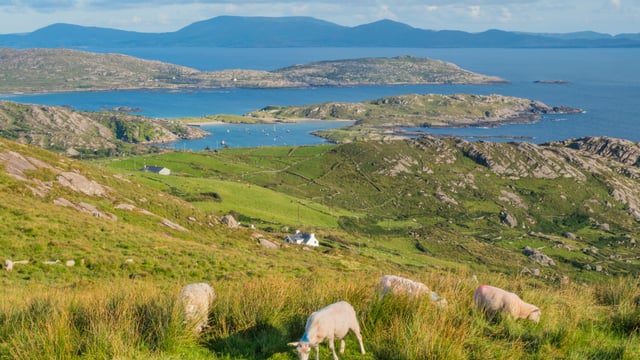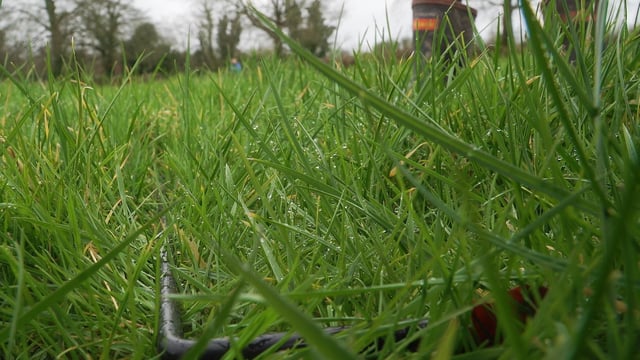Watch: Farm families bring protest over CPOs and greenways to Leinster House
Farm families from across the country travelled to Leinster House today (Wednesday, November 12) to highlight their concerns about the use of compulsory purchase orders (CPO) and the development of greenways.
Young farmers took a day off school and college, babies were held in arms and farmers with many years behind them united outside the gates of Leinster House to voice their worries about the future of their land and the development of greenways.
Their concerns revolve around land that has been farmed for generations, which could, as one farmer told Agriland today "be snatched away" to develop a path for "people to walk their dogs or cycle".
We’re here with farmers today outside Leinster House as they highlight their concerns about Compulsory Purchase Orders (CPOs) used on lands for Greenways pic.twitter.com/Xrp0yEOnES
— Agriland (@AgrilandIreland) November 12, 2025
Landowners and farmers gathered outside Leinster House today said they are, in general, not against the development of greenways, instead it is the use of CPOs to acquire the land that they are objecting to.
Many feel they are being ignored by local authorities and planners in this respect.
One of those protesting from early was John Joe Fitzgerald, national vice-president of the Irish Natura and Hill Farmers Association (INHFA) and Kerry hill sheep farmer.
Fitzgerald said that by "allowing TII (Transport Infrastructure Ireland) to use CPOs for non-critical infrastructure projects, we are effectively opening the door for a much wider application and this is something that should concern every farmer and landowner".
He also believes that the CPO option "has been abused and used as a threat in forcing farmers and landowners to accept a massive imposition around their way of life, their privacy and potentially their safety".
Greenways
While the protest took place outside, inside Leinster House the Oireachtas Joint Committee on Transport also met to hear directly from those who have concerns about greenway projects and from groups who are enthusiastic supporters of the projects.
Paul O'Brien, chair of the Irish Farmers' Association Infrastructure Project Team told the committe that the IFA’s position is that "greenways should, wherever possible, be developed on public lands and not on privately owned farmland".
O'Brien also warned that many proposed greenway routes "are being planned across privately owned farmland rather than public or State lands".
"This approach is deeply problematic and is causing significant anxiety and hardship for farm families whose livelihoods depend on those lands.
"The impact of a greenway cutting through a working farm can be severe," he added.
Land
Separately, Cleona O'Shea from the National Greenway Action Association also told the Oireachtas Transport committee today of the "pressure" that farm families are now under because of the potential threat of a CPO on their land.
"People cannot invest, sleep, or plan under the constant shadow of CPOs.
"Many older property owners are finding this process deeply distressing — it has become all-consuming, leaving them feeling isolated, threatened, and fearful for their homes and their future," O'Shea added.
She said in her particular case if a greenway was to be developed on her land it would "cut the farm in half".
Ultilmately she said the issue at stake was the fact that "we own the land and you want it," in relation to greenway projects.
But the committee also heard that greenways can also bring breathe new life into rural areas and open the door to new business opportunities for farm families.
Garvan Cummins, the co-founder of the Déise Greenway Group, said that the Waterford Greenway, also known as the Deise Greenway, had brought "hope" to many rural areas along its 46km pathway.
Cummins said the greenway had helped to bring visitors and tourists to rural towns and villages that previously had been in decline.
He also said that walkers and visitors passing by farms gave farm families the opportunity to set up start-up businesses to take advantage of this passing traffic.
"There is great community spirit to our rural areas.
"The greenway has had a positive effect on rural isolation particularly for rural communities," Cummins added.

